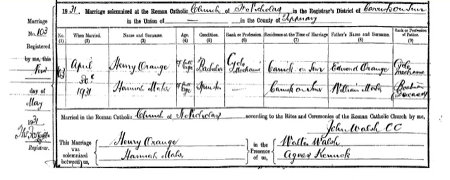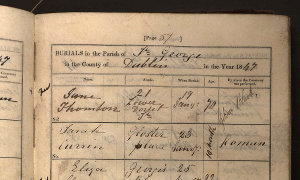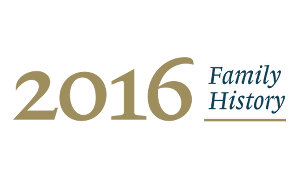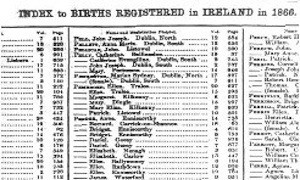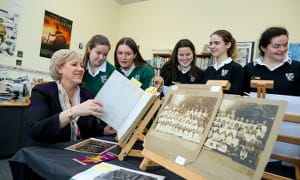Get some idea of the background to your family surnames and have a look at some of the basic guides to tracing family history. A good on-line guide is at http://tinyurl.com/c82qkl4.
Most county libraries now also have their catalogues available on the Internet – see www.askaboutireland.ie/libraries.
The National Library and National Archives both run free walk-in genealogical advisory services, where you will get personal advice on records and research.
Some useful published works are:
Donal Begley, editor, Irish Genealogy, A Record Finder ( Dublin, Ireland: Heraldic Artists Ltd.,1981)
Kyle J. Betit & Dwight A. Radford, Ireland: A Genealogical Guide for North Americans, (Salt Lake City: Irish At Home and Abroad, 1995)
ffeary-Smyrl, Steven and Eileen Ò Dùill, Irish Civil Registration: Where Do I Start? ( Dublin, Ireland: The Council of Irish Genealogical Organizations, 2000, www.cigo.ie)
John Grenham, Tracing Your Irish Ancestors (Dublin, Ireland: Gill and Macmillan, fourth edition, 2011)
George B. Handran, CG, ed., Townlands in Poor Law Unions; a Reprint of Poor Law Union Pamphlets of the General Registrar's Office (Salem, Massachusetts: Higginson Book Company, 1997)
Tony McCarthy, Irish Roots Guide, (Dublin, Ireland: The Lilliput Press, 1995).
Màire Mac Conghail and Paul Gorry, Tracing Irish Ancestors, A Practical Guide to Irish Genealogy, (Glasgow, Scotland: Harper Collins, 1997) . Distributed in the United States by Roberts Rinehart Publishers, 6309 Monarch Park Place, Niwot, Colorado 80503.
Edward Mac Lysaght, The Surnames of Ireland, (Blackrock, Co. Dublin, Ireland: Irish Academic Press, reprinted 1991).
Brian Mitchell, A New Genealogical Atlas of Ireland, (Baltimore: Genealogical Publishing Co., 3rd printing, 1992)
David S. Ouimette, Finding Your Irish Ancestors: A Beginner's Guide, (Ancestry.com, 2005)
James G. Ryan, Irish Records, Sources for Family and Local History, (Glenageary, Co. Dublin, Ireland: Flyleaf Press, 1998).
James G. Ryan (editor), Irish Church records, (Flyleaf Press (Dublin) 2001. www.flyleaf.ie)
